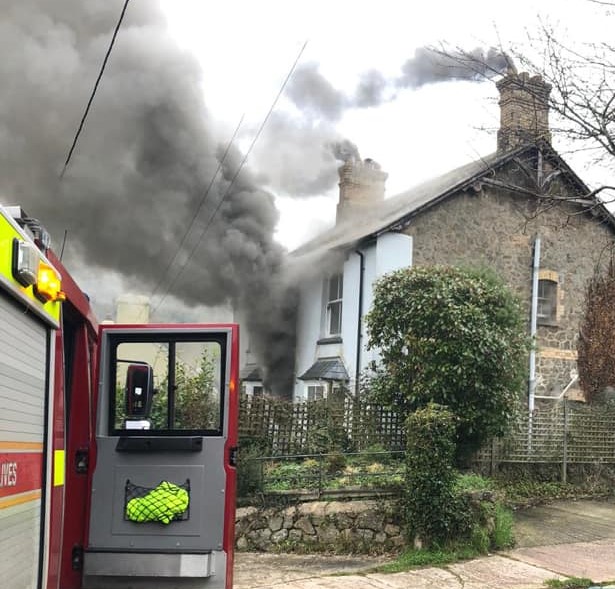
Is Your Chimney a Hidden Danger?
Particularly for those residing in areas like Newton Abbot or Kingskerswell, where wood burning is prevalent, understanding the associated risks is crucial. Fireplaces and wood-stoves are designed to safely contain wood-fuelled fires while providing heat for your home. The chimneys that accompany them serve to expel the by-products of combustion—substances released when wood burns. These substances include smoke, water vapour, gases, unburned wood particles, hydrocarbon volatiles, tar, and assorted minerals. As these substances exit the fireplace or wood-stove and flow up the relatively cooler chimney, condensation occurs. The residue that adheres to the inner walls of the chimney is known as tar or creosote.
The accumulation of tar in your fireplace, wood-stove, and chimney is inevitable. As a natural by-product of the wood-burning process, tar forms a black/brown crusty, powdery, flaky, tar-like, drippy and sticky or hard and shiny glazed coating on the inside of your chimney. It is not uncommon to observe all forms of tar within a single flue system. Regardless of its form, creosote is highly combustible and poses a significant fire hazard—it’s the primary fuel in most chimney fires. This is where the expertise of professionals like ProSweep Devon becomes invaluable.
During a chimney fire, the external surface of the chimney can become hot enough to ignite the surrounding walls, floor joists, rafters, insulation, or roofing materials. This can quickly escalate into an uncontrolled structure fire. Even without a chimney fire, creosote and soot can reduce the draft and diminish the efficiency of your heating system.

Certain conditions foster the build-up of tar. Restricted air supply, unseasoned or wet wood, and cooler than normal chimney temperatures can all accelerate tar accumulation on flue walls. Air supply in fireplaces may be restricted by failure to open the damper wide enough to move heated smoke up the chimney rapidly or operating a stove with an unlined chimney. The longer the smoke lingers in the chimney, the more likely it is that tar will build up in the flue. This is why regular chimney inspections and sweeps, like those offered by ProSweep Devon, are essential for homeowners in Newton Abbot, Kingskerswell, and beyond.
Burning dry, seasoned wood allows for higher burning temperatures. If the wood is not seasoned, energy is used to initially drive off the water trapped in the cells of the logs, resulting in cooler smoke temperatures. Burning hot fires with dry, seasoned wood can ultimately help reduce tar accumulation. However, even with best practices, regular professional maintenance from a service such as ProSweep Devon is essential to ensure your chimney remains safe and efficient.